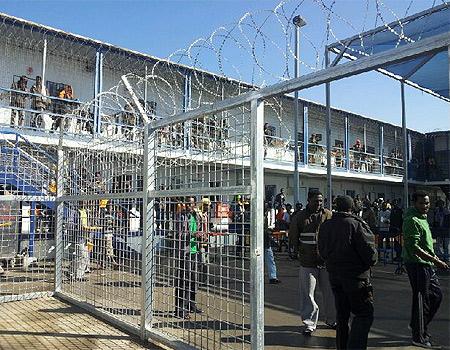Close Saharonim
In a letter published by the Eritrean asylum seekers being held in Saharonim last October, they wrote: “We came to Israel after crossing the borders of three countries and overcoming great difficulties. The decision to compel us to forced three-year stays in detention camps ... hit us like some really bad news.
“In the past we have suffered awful suffering, including terrible torture at the hands of smugglers and human traffickers, who demanded ransoms,” the letter continued. “Some of us left our homeland in Eritrea and are now forced to live in isolated detention camps, barricaded by walls. We are refugees, like refugees in other countries and refugees that came to Israel in the past ... We have committed no crime that would justify this kind of treatment. What have we done to justify our imprisonment in enclosed areas?”
This Israeli policy must stop. The completion of construction on the southern border fence with Egypt has dramatically reduced the number of migrants entering Israel from Africa. In the last few months, only a small number of asylum requests were made, in contrast to the numbers received in the same months a year ago.
Israel can continue to provide temporary collective protection to asylum seekers from countries it would be impossible to repatriate them to, or it can examine asylum requests on an individual basis. The goal of imprisonment at Saharonim is to punish a person for requesting asylum, when the desire is to deter others from also doing so. The matter stands in opposition to Israel’s international responsibilities and to the Basic Law on Human Dignity and Freedom.
The Saharonim detention center should be closed, and asylum seekers treated as required by international law and moral norms.

